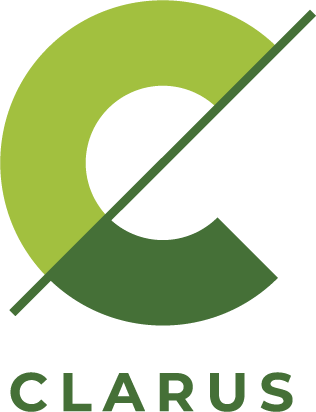Public Deliverables
-
 Project Handbook M3
Project Handbook M3The deliverable defines the managerial rules and procedures that will be followed by the CLARUS consortium across the whole project duration. Moreover, this document gives instructions and regulations how the quality of the project in general and the project results and findings in specific shall be guaranteed and treated.
-
 Quality, Risk and Data Management Report M6
Quality, Risk and Data Management Report M6The report introduces the CLARUS Data Management Plan. The elements addressed include Data Security and the Ethical Policy, which covers the Ethics and Data Protection Impact Assessment Methodology included in the pilots. The final section covers quality management and risk management activities and the rules and procedures to be followed by the partners throughout the project.
-
 GREEN DEAL KPIs M8
GREEN DEAL KPIs M8This deliverable presents the Green Deal Performance Assessment methodology analysis and design results. The objective is to identify a methodology to assess the environmental sustainability of the food manufacturing systems included in the project. It describes the state of the art of the Green Deal assessment methods, the final metrics selected, and the sustainability KPIs chosen for the Green Deal Index calculation.
-
 CLARUS Data Approach M9
CLARUS Data Approach M9The deliverable presents the primary steps to define the CLARUS Dataspace. The dataspace will guarantee secure data sharing by following the principles of European Data Space. It first analyses the current state of the art in the recent EU initiatives, then the specific CLARUS requirements for the Data Space. And finally, the specifications and design.
-
 Report on Exploitation and Sustainability Strategy M12
Report on Exploitation and Sustainability Strategy M12The report presents an interim status of CLARUS's exploitation and sustainability strategy, aiming to establish a sustainable business model for the three CLARUS TEOs post-project. It offers an overview of the current state of the CLARUS TEOs, their exploitation strategy, and intellectual property rights management. An environment analysis (PESTLE) was conducted, categorizing factors as positive or negative, which were then used in a SWOT analysis. A competitive analysis identified 27 GDIs, Data Spaces, and AI-Toolkits, suggesting unique market potentials for CLARUS TEOs, especially when combined. The SWOT analysis provided insights into leveraging strengths, mitigating risks, and maximizing success opportunities.
-
 Integration and Data Engineering Report M18
Integration and Data Engineering Report M18This deliverable provides an overview of the activities undertaken to implement the solutions developed within the CLARUS project for the pilots, focusing on integration, data engineering, and AI model training during M09-M18. It summarizes the approaches, tools (e.g., MLOps toolkit), and tasks that supported the development, testing, and deployment of the solutions in the Ardo and Honkajoki use case
-
 Quality Risk and Data Management Plan M18
Quality Risk and Data Management Plan M18This document includes the second release of the CLARUS Data Management Plan (DMP), updated at M18, adhering to FAIR principles and addressing data security, storage, and preservation. It also explores the legal and ethical aspects of the project, detailing findings from the ALTAI-driven Ethics and Data Protection Impact Assessment for the industrial pilots. Additionally, it outlines quality assurance measures, risk monitoring, and scientific/technical coordination using the ECOGRAI model for performance evaluation. Finally, it provides insights into innovation management and business impact activities, highlighting strategies to maximize project outcomes.
-
 Sustainability Maturity Assessment M36
Sustainability Maturity Assessment M36This document presents the CLARUS Sustainability Maturity Assessment Tool, designed to help manufacturing companies evaluate and enhance their sustainability performance in line with CSR principles and the EU Green Deal. It introduces a four-phase methodology covering evaluation, diagnosis, AI-driven modeling, and strategic planning, providing companies with a Green Deal Index (GDI) to benchmark progress. The deliverable also details the application of the SCOR model to the food manufacturing sector, enabling a structured analysis of supply chain functions, while highlighting the role of IoT and Big Data in supporting digital transformation and sustainable supply chain management


